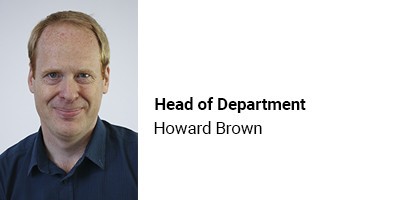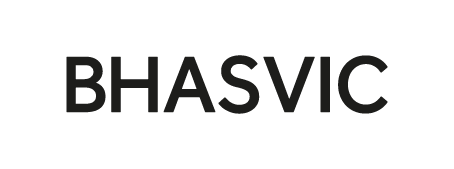History (Early Modern) A Level
Qualification: GCE A Level in History
Exam Board & Specification Code: Pearson; 9HI0; Specification
Course Entry Requirements: 4 in English Language GCSE. It is not possible to study History Modern and Early Modern A levels together.
Please make sure that you have understood the overall entry requirements to study at BHASVIC. These are available here and outline the GCSE grades you need to take up one of the Study Programmes at the college.
Length and size of qualification: 2 year single course
Timetable hours: 4.5 hours per week
Assessment method: 3 exams of varying lengths plus coursework
BHASVIC Department: Humanities
What will I study?
Common to each of our History courses are narratives that are full of intrigue, heroism, conflict and struggle. You will investigate some of the greatest personalities and events of the past. Each of these topics illuminates the present whilst being fascinating in their own right. On our Early Modern History option you will study “Conquest, Crusade and Control in the Medieval and Early Modern World”: The Crusades c.1095-1204, Anglo-Saxon England and the Anglo-Norman Kingdom c.1053-1106, The witch craze in Britain, Europe and North America, c 1580-1750 and the Coursework: The Origin of the English Civil War. The course is 20% coursework, and 80% external exam.
Is this course right for me?
Do you want to discover more about the most significant events and people in history? Are you fascinated about what we may able to learn from the past? Do you enjoy discussion, debate, reading and research? History encourages independent thinking and really suits students who enjoy reading, questioning and debate. Lessons will mainly be seminar style and your learning is supported by foreign and local trips, university study days and student conferences. History is even more engaging when it is seen in action. We invite visiting academics, take trips to local historical sites such as Battle, Pevensey and the Banqueting House; arrange study and lecture conferences; visit universities and their archives and other major museums such as the National Portrait Gallery, British Army Museum and Mary Rose. We also have a fantastic history of foreign travel, including recent trips to China, Russia, Germany, Italy, and Sicily.
Where next?
History is a highly esteemed qualification as it develops rigorous analytical, evaluative and communication skills which are transferable to further study of the subject. This may be through university, further education, direct entry into apprenticeships or work. History is very highly regarded by universities and employers for its rigour and the skills that you gain can take you in many varied and interesting career directions including academia, the media, business and the legal professions. Jobs which directly relate to the subject might include Heritage Manager, Conservation Officer, Museum Education or Curation and Teaching. Jobs where this subject would be useful might include Archivist, Journalist, Civil Service, Information Officer, Solicitor or a PPC Specialist. Useful websites to research careers and wider progression options could include the Historical Association, National Trust, All About Careers and The Apprenticeship Guide.
Apply View DepartmentLast year, 54 BHASVIC students went onto study History degrees at 23 different universities.
There are a wide range of degrees that are history related including Modern History, Modern History and Ancient History, and lots more. Popular universities including Bristol, Manchester, Leeds and Exeter and last year 3 students went onto study History at Oxford and 2 at Cambridge.
Students can study A level History (Modern) or choose A level (Early Modern).
Should I study History at degree level?
As a humanities subject, there are about 9 hours of contact time per week, with a mix of lectures and seminars. Content varies over the optional modules but is usually challenging and engaging. History is a course where independent drive is key. With just 6 to 10 contact hours a week, a lot of reading and writing is done whenever you feel best working. History is varied with a choice in modules.
Types of History degree
You can choose to study History or a closely related subject, for example
- Fashion history
- Architectural history
- History of medicine
- History of advertising
- History of religion
- History of warfare
- History of science
The combinations are extremely varied.
Entry Requirements
A-levels (or equivalent) usually required
- Most courses ask for history
May be useful to have one of:
- Economics
- Sociology
- Politics
- English literature
- Religious studies
- Philosophy
Top Universities for History
Cambridge, Durham, Oxford, St Andrews, Exeter
Lancaster, Leeds, Southampton, Loughborough – all very high student satisfaction scores
UCL, LSE, Sheffield, Sussex - all with top graduate prospects
Many of our students choose a combined degree - applications from our students have included:
- History and Political Science
- History and History of Art/Archaeology
- History and Sociology
- International History and Politics
- History (Medieval/Modern)
Example entry requirements (please check):
A-Level/BTEC equivalents:
Liverpool History A,B,B
Bristol UWE History UCAS Points: 112
Lancaster History (Study Abroad) A,A,B
Why not try a foundation degree or higher apprenticeship?
Plymouth History (Foundation) UCAS Points: 32-48
Some examples of History-related degrees that our BHASVIC students have gone onto study in the past few years are:
- Ancient World with a Year Abroad
- Ancient History and Archaeology
- Ancient, Medieval and Modern History
- Contemporary Military and International History
- English/History (Equal)
- French Studies with History
- History and Arabic
- History and Creative Writing
- History and Economics
- History and German
- History and International Relations (with placement year)
- History and Philosophy of Science
- History and Politics of the Americas with a Year Abroad
- History with Politics
- History (Medieval/Modern or Medieval/Modern/Scottish)
- History and French
- History and History of Art/Archaeology
- History and Politics with Study Abroad
- History and Russian
- History and Sociology
- International History and Politics
- Military History
- Modern History with Economics
- Modern History and Politics (Integrated)
- Modern History with Economics
- Music and History
- Politics and Contemporary History
How BHASVIC helps: We have a wide range of information and resources to support students applying for university including subject area guides, personal statement and UCAS resources, super-curricular activity guides, open day and bursary information. We also cover university research, careers, art foundation and all other destinations in depth in tutorial and students can choose an appropriate pathway for them in the second year from UCAS, Employability & Enterprise, Visual Arts, Oxbridge and Medics. Our Spring Futures Fair brings in a huge number of university visitors with workshops and information stands and departments will bring speakers in wherever possible.
Employers value the research, analytical, teamwork and communication skills that history students develop throughout their studies.
Jobs where an History degree would be useful include:
- Academic librarian
- Archaeologist
- Broadcast journalist
- Civil Service
- Editorial assistant
- Information officer
- Politician's assistant
- Web content manager
- Teacher
Career Prospects
You'll learn research skills, how to evaluate archive and source materials and to write clearly. This is a subject where students might go into politics, law, business, accountancy, international development or further study for careers in the culture or heritage industries, including museums, art galleries and libraries.
Studying history will help you to develop subject-specific skills including an understanding of culture and civilisations and how history has influenced them and how to examine and interpret source materials with many useful transferable skills.
Local Market Information
Working in British Intelligence
MI5 and MI6 have an ongoing recruitment drive. There are also opportunities to work in a technical role at GCHQ
Examples of apprenticeships and opportunities include:
- Legal Administrator
- Library Assistant
- Visitor Experience Assistant
How BHASVIC helps: We have an excellent Careers Hub and careers advisors who are available for appointments through student services. Local jobs are advertised and they will advise on skills and specialist areas such as degree apprenticeships. Students can choose an appropriate pathway for them in the second year from UCAS, Employability & Enterprise, Visual Arts, Oxbridge and Medics. Our Spring Futures Fair brings in a huge number of careers & apprenticeship visitors with workshops and information stands and departments will bring speakers in around the subject area.
You will gain many transferable skills studying History that will be valued in the workplace including:
Gathering / analysing information from different sources, exploring different perspectives, developing informed views, presentation skills, constructing arguments, meeting deadlines
Local Skills
The Local Skills agenda considers job prospects and employment in our local area of Sussex. Many of our students will contribute to the National Skills agenda and go onto find a career in a wide range of sectors. For students in Sussex our local skills are identified as the following sectors:
- Construction
- Creative & Cultural
- Digital (includes IT and Technology)
- Engineering & Manufacturing
- Healthcare (includes Bio Life Sciences and Pharmaceutical)
- Visitor & Hospitality
- Land-based (includes Agriculture and Viticulture)
- Green Skills
Degree choices that match the Creative & Cultural Local Skills agenda our BHASVIC students went onto study include:
- Anthropology and History
- History (Medieval/Modern or Medieval/Modern/Scottish)
- History and International Relations
- History and Modern Languages
- History and Russian
Career choices that match the Creative & Cultural Local Skills agenda our BHASVIC students went onto work in include:
- Political analyst
- Civil Service
- Government advisor
- Information officers
- PR
How BHASVIC helps: Skills Week in A1 helps students build skills in the workplace and a focus on developing skills through tutorial in A1 and A2 supports students in writing outstanding Personal Statements and CVs. We know our students have already gained a wide variety of skills at home and with extra-curricular activities and will increasingly take up jobs. Our focus is on supporting them to evidence skills already gained, identify gaps and ensure that they transfer that to CVs and applications. This is in partnership with every curriculum area.
